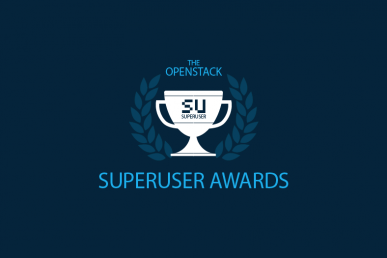The OpenStack Summit kicks off in less than six weeks and seven deserving organizations have been nominated to be recognized during the opening keynotes. These organizations are competing to win the Superuser Award that will be presented by China Mobile, the most recent winner from the OpenStack Summit Barcelona last October.
For this cycle, the community (that means you!) will review the candidates before the Superuser editorial advisors select the finalists and ultimate winner. Finalists will be recognized during the OpenStack Summit Boston keynotes and the winner takes the trophy on stage.
Check out the nominations in alphabetical order below and click through to see each organization’s full application. Then, rate the nominees to select who you think should be recognized at the OpenStack Summit Boston.
You have until Tuesday, April 4 at 11:59 p.m. PT to rate them. Cast your ratings here.
City Network
City Network is a leading provider of infrastructure services data centers in 27 locations around the world. Shifting to a 100 percent focus on OpenStack has been key to their global expansion in general and their cloud offerings in particular. They currently run OpenStack in eight regions across three continents. Apart from their public cloud, they run a separate, regulatory compliant and interconnected cloud completely on OpenStack. Combined, City Network’s users run over 10,000 virtual cores in production.
MIT Computer Science and Artificial Intelligence Lab
The team has been running production workloads since upgrading from Essex to Folsom in October 2012. Currently their cloud has 82 hyper visors with 1,220 physical cores (2,440 apparent cores due to hyper threading) and 10 terabytes of RAM, typically running over 1,000 instances at any given time. Since August 2013, when the lab started maintaining long term utilization data, they have run 688,125 instances totaling over 100 million vCPU hours. OpenStack allowed its team to multiply its virtualization environment by 20 with no additional staff, while also providing much greater flexibility and functionality to users.
Ocado Technology
UK-based Ocado Technology writes the software systems powering Ocado.com, the world’s largest dedicated online grocery retailer. The Ocado Technology networking team has deployed over 5,000 CPU cores with 27 terabytes of RAM running 1,750 virtual machines (VMs). After gathering all the requirements, the team realized that OpenStack provided the best option for our infrastructure needs. After starting with a small core deployment using Puppet that catered for three roles (Ceph, OpenStack Controller and OpenStack Compute) they have been expanding the deployment to include more features.
Paddy Power Betfair
At Paddy Power Betfair, everything is automated using OpenStack, so they don’t have a need for huge teams to support the platform. Its team has gone from 500 deployments a week to over 1,000 deployments a day using the OpenStack APIs to increase time to market. And they have been able to automate the scale out of 600 compute nodes across two datacenters, with the end state 1,300 compute nodes which will make up 100,000 cores and 2.08 petabytes of storage, all running on OpenStack.
Snapdeal
The entire business of Snapdeal runs on the private cloud called Snapdeal Cirrus that is built on top of OpenStack. In the last year and a half, Snapdeal has not only built an infrastructure-as-a-service (IaaS) using OpenStack but created an entire ecosystem of services built on top of the new private cloud which has transformed completely how applications are designed, built, deployed and maintained.
UKCloud
The dedicated OpenStack team has been a major force behind the UK government’s cloud-first policy. From online tax returns with HMRC, complex data analytics at Genomics England and integrated vehicle and driver records at the DVLA (all hosted on UKCloud), pooling central government resources and moving them to the cloud has resulted in £600 million in savings. The next phase is cloud native with initiatives such as GOV.UK Verify, Pay and Notify, as well as shared services and microservices on a common open cloud infrastructure. OpenStack is the compute, storage and networking engine that drives their cloud native infrastructure product line, engineered specifically for today’s cloud-native applications.
VMware
VMware’s team has provided an internal cloud that is used by the development, marketing and testing teams. Members of the various teams are able to use the self-service portal to create environments for their specific purposes. This has saved VMware time, effort and resources. Not only does it enable the team to work efficiently, but the team is able to return back to the community bug fixes, improvements and enhancements of its experiences with OpenStack.
- OpenStack Zed: The End of the Alphabet, The Beginning of a New Era | OpenInfra Live Recap - October 6, 2022
- Around the World with OpenInfra Events | OpenInfra Live Recap - September 22, 2022
- Making VDI a first-class citizen in the OpenStack world | OpenInfra Live Recap - August 25, 2022

)









